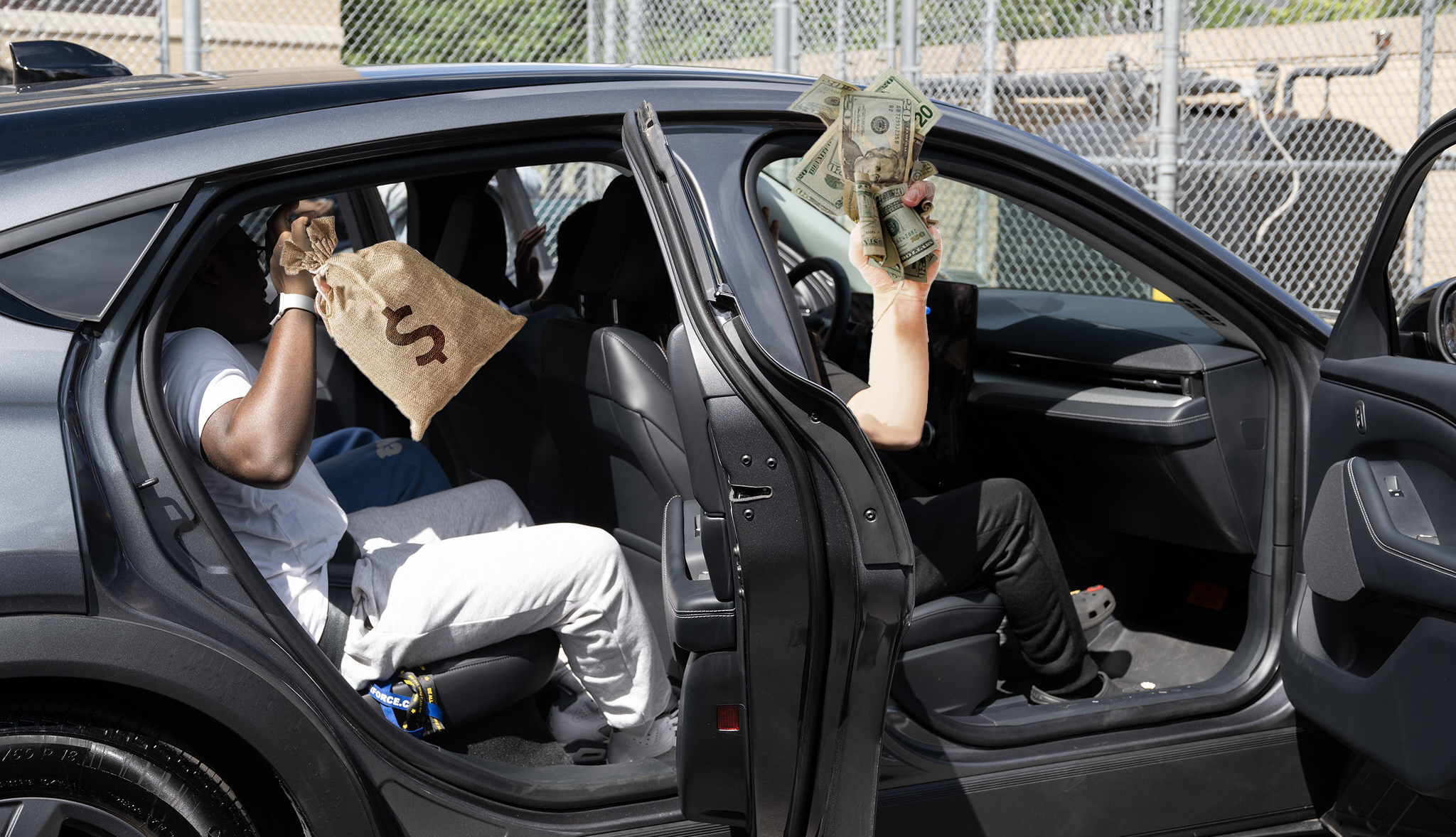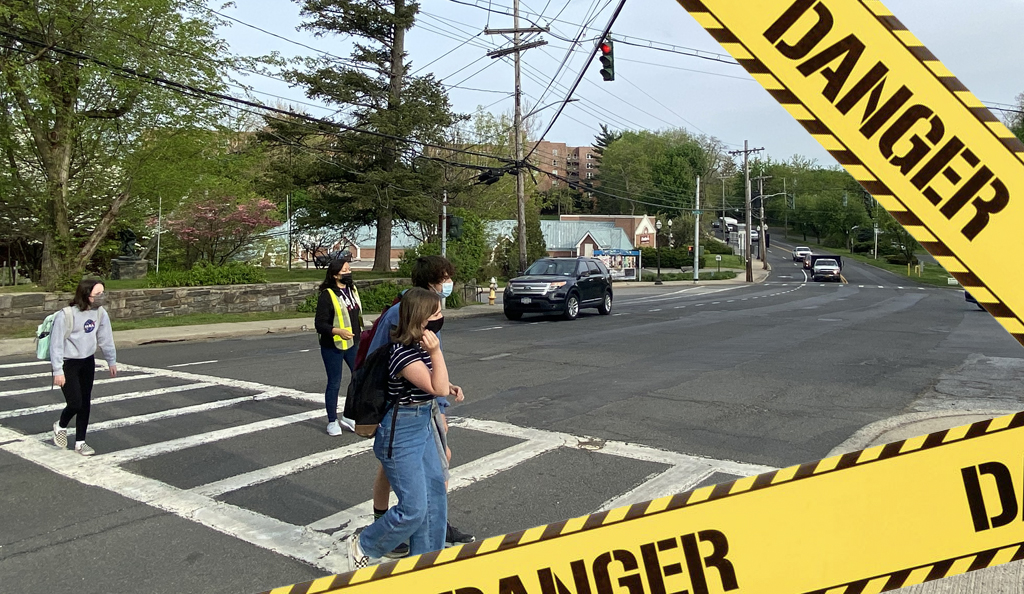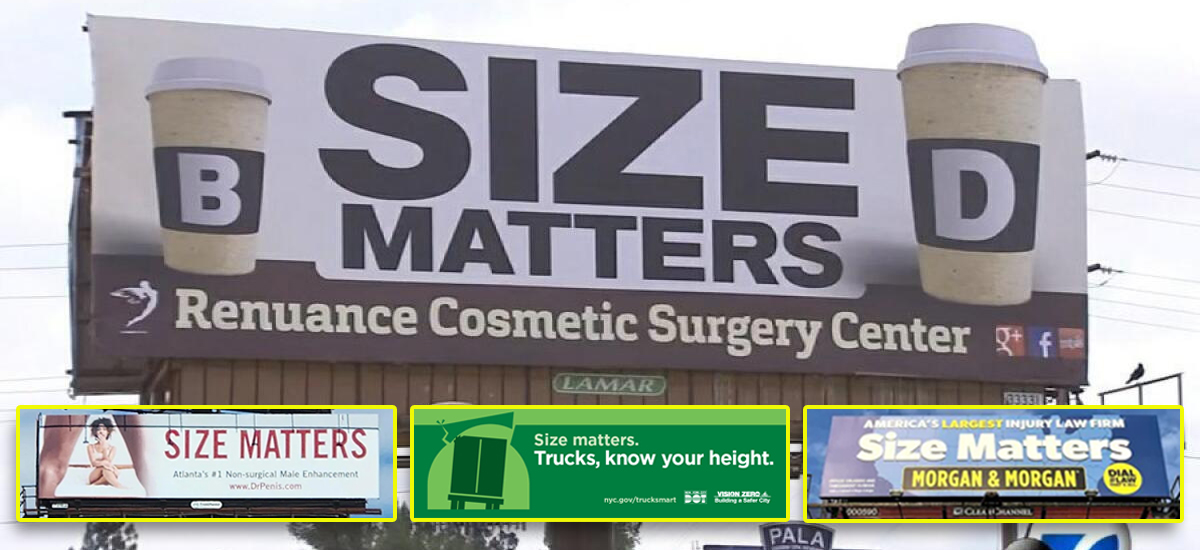New York City high school students met with MTA Chair Jay Walder yesterday afternoon for a much-anticipated discussion of how to continue the MTA's student fare program. The meeting itself was closed to the media, but at a press conference that followed, both parties described their face-to-face as more of a strategy session than a confrontation.
 MTA Chair Jay Walder and student advocates at yesterday's presser. Photo: Noah Kazis.
MTA Chair Jay Walder and student advocates at yesterday's presser. Photo: Noah Kazis.The immediate upshot is that the MTA Board will not vote on phasing out discount student MetroCards at its next meeting, coming up on March 24. That buys the students more time, which they intend to use, as one young advocate said, to ask the state and city "to step up and do their part."
The student coalition has got to be the most promising transit advocacy campaign going in New York City right now. If anyone can sway recalcitrant lawmakers to prioritize their transit-riding constituents in an election year, it's probably these advocates, who represent a coalition of youth organizations and have become the public voice for hundreds of thousands of students and their families.
"We want the state and city to get new revenue sources," said Khaair Morrison, 15, who attends Francis Lewis High School in Queens. "We have to target City Council members and state legislators."
Here are some of the major goals and principles the students conveyed yesterday:
- They are advocating for the continuation of both the student fare program and the subway and bus service on the chopping block in the MTA's austerity program.
- To fund it, they're asking the MTA to use stimulus money, but also calling for new revenue streams from the state and city to arrive at an "affordable and sustainable" solution. They aren't prescribing any specific revenue sources, but ideas including congestion pricing and a return to the student MetroCard funding formula established in 1995 surfaced in conversations with individual student advocates.
- They want to "put an end to the blame game," in the phrase of Adolfo Abreu, a student the Bronx Center for Science and Math. Their strategy is to get representatives from the state, the city, and the MTA all in a room together, so that one party can't wriggle out of responsibility by pointing fingers at someone who's not at the table.
The student advocates will have a few months to make their case to electeds. Walder, who noted at the outset of the presser that "all of us want to see students in New York City have free travel to get to school," said the MTA probably has until June to decide whether it will continue the student MetroCard program in the next school year.
Noah Kazis contributed to this post.





